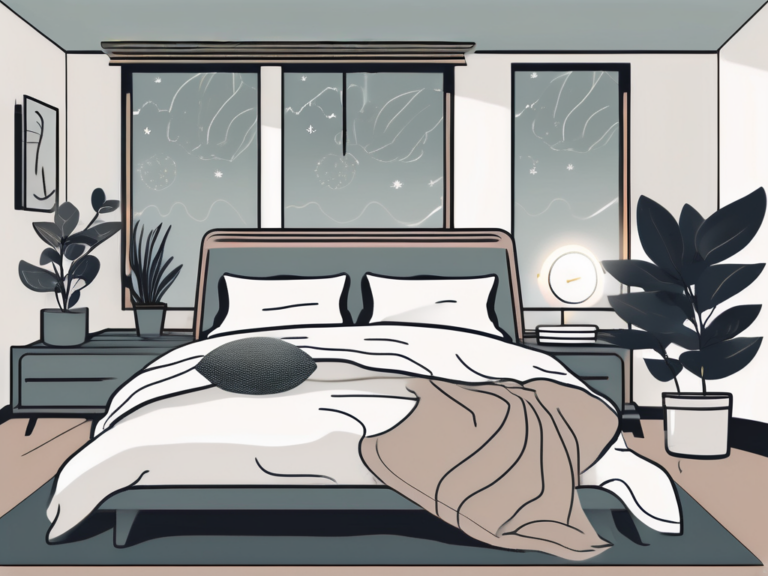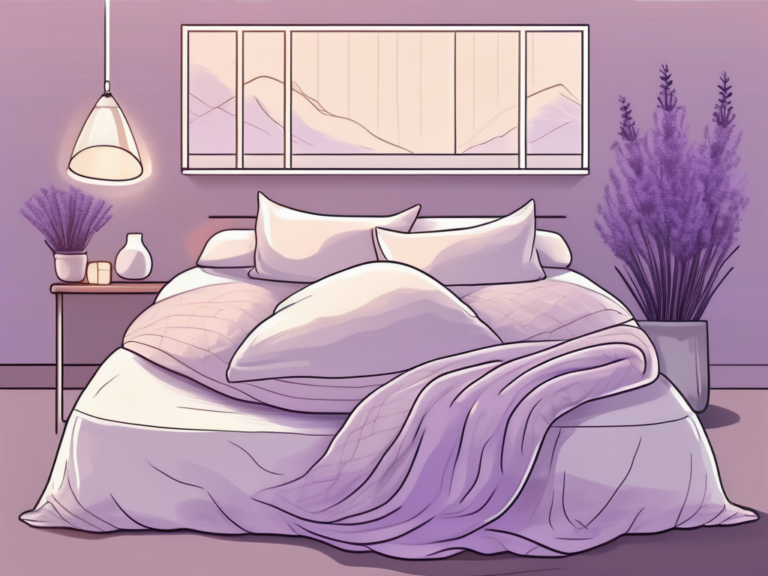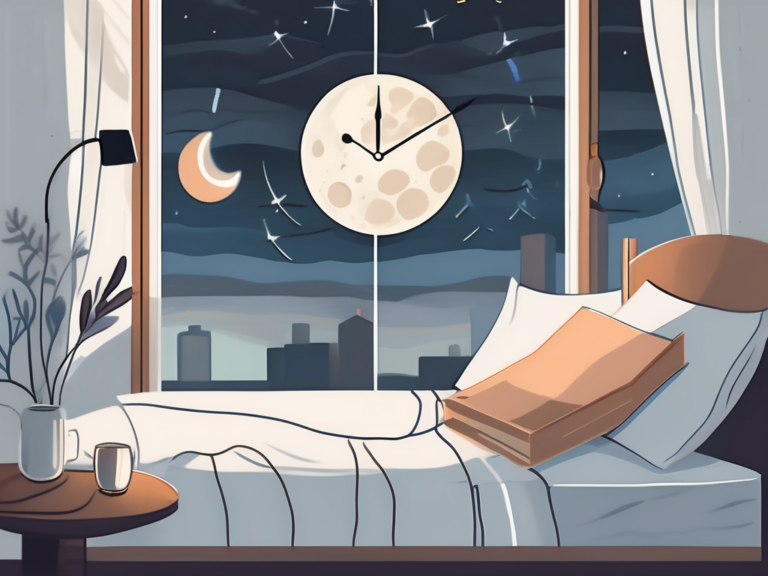Tips on How to Get to Sleep
Are you struggling to fall asleep at night? You’re not alone. Many people find it challenging to achieve a restful night’s sleep. Fortunately, there are several tips and strategies you can try to improve your sleep quality. In this article, we will discuss the importance of sleep and explore common causes of sleep problems. We will also provide practical advice on creating a sleep-inducing environment and adopting healthy sleep habits. Additionally, we will explore relaxation techniques that can help you unwind and find tranquility before bedtime. Lastly, we will discuss when it might be necessary to seek professional help for persistent sleep issues.
Understanding the Importance of Sleep
Sleep plays a vital role in our overall well-being. It is during sleep that our bodies repair and rejuvenate, allowing us to function at our best. Not getting enough quality sleep can have serious consequences for our physical and mental health.
The Role of Sleep in Physical Health
Getting enough sleep is essential for maintaining a healthy body. It aids in the regulation of hormones, such as insulin, which plays a crucial role in metabolism and blood sugar control. It also supports immune function, helping to protect us from illnesses and chronic diseases.
Mental Health Benefits of Adequate Sleep
Adequate sleep is also essential for our mental well-being. It promotes optimal cognitive function, including improved concentration, problem-solving abilities, and memory. It can also contribute to a better mood, reduced stress levels, and enhanced overall mental and emotional resilience.
But did you know that sleep also plays a significant role in our creativity? When we sleep, our brains continue to work, processing and consolidating information from the day. This process, known as memory consolidation, helps to strengthen our memories and make connections between different pieces of information. It is during this time that our brains can also generate new ideas and insights, leading to increased creativity and innovation.
Furthermore, sleep has a profound impact on our physical appearance. Have you ever noticed how your skin looks dull and tired after a night of poor sleep? That’s because during sleep, our bodies produce collagen, a protein that helps to keep our skin firm and elastic. Lack of sleep can lead to a decrease in collagen production, resulting in the appearance of fine lines, wrinkles, and sagging skin.
Common Causes of Sleep Problems
Understanding the root causes of sleep problems can help in finding effective solutions. Here are three common culprits:
Stress and Anxiety
Excessive stress and anxiety can make it difficult to relax and fall asleep. Racing thoughts and worries can keep your mind awake, preventing you from finding restful slumber. It can be helpful to establish a relaxation routine before bed to calm your mind and prepare for sleep.
One effective relaxation technique is deep breathing exercises. By focusing on your breath and taking slow, deep breaths, you can activate your body’s relaxation response. This can help reduce stress and anxiety, allowing you to drift off into a peaceful sleep.
Physical Health Conditions
Certain physical health conditions can interfere with sleep. Pain from conditions such as arthritis or respiratory issues like asthma can disrupt sleep patterns. Managing these conditions with proper medical care and lifestyle adjustments can help improve sleep quality.
In addition to medical care, incorporating gentle exercises into your daily routine can also promote better sleep. Activities like yoga or stretching can help alleviate pain and improve flexibility, making it easier for you to find a comfortable sleeping position. Remember to consult with your healthcare provider before starting any new exercise regimen.
Lifestyle Factors
Your lifestyle choices can significantly impact your sleep. Factors such as irregular sleep schedules, excessive caffeine or alcohol consumption, and exposure to screens before bed can disrupt your natural sleep-wake cycle. Making positive lifestyle changes and establishing healthy sleep habits can lead to improved sleep.
Creating a relaxing bedtime routine can signal to your body that it’s time to wind down and prepare for sleep. This can include activities such as reading a book, taking a warm bath, or practicing relaxation techniques. By consistently following a bedtime routine, you can train your body to recognize these cues and promote a more restful sleep.
Additionally, creating a sleep-friendly environment can also contribute to better sleep. Ensure that your bedroom is dark, quiet, and at a comfortable temperature. Investing in a comfortable mattress and pillows that support your body’s natural alignment can also make a significant difference in your sleep quality.
Creating a Sleep-Inducing Environment
Your sleep environment plays a crucial role in the quality of your rest. Here are some tips to create an optimal sleep-inducing environment:
The Ideal Bedroom Temperature
Ensuring that your bedroom is at a comfortable temperature is essential for a good night’s sleep. Experts generally recommend keeping it between 60 and 67 degrees Fahrenheit (15-19 degrees Celsius). This temperature range helps your body maintain its natural sleep cycle by promoting the release of melatonin, the hormone that regulates sleep. It’s important to note that individual preferences may vary, so finding the temperature that works best for you is key. Adjusting your room’s temperature and using suitable bedding, such as breathable sheets and blankets, can also help promote better sleep by preventing overheating or feeling too cold during the night.
Reducing Noise and Light Disturbances
Creating a quiet and dark environment in your bedroom is crucial to minimize disruptions that can interfere with your sleep. Noise disturbances, such as traffic sounds or snoring partners, can disrupt your sleep cycles and prevent you from reaching deep, restorative sleep. Consider using earplugs or white noise machines to block out unwanted sounds and create a peaceful atmosphere. Additionally, light disturbances, such as streetlights or early morning sunlight, can interfere with your body’s natural sleep-wake cycle. Using blackout curtains or wearing an eye mask can help create a dark environment that signals your brain it’s time to sleep.
Choosing the Right Mattress and Pillow
Investing in a supportive mattress and comfortable pillow is crucial for a good night’s sleep. Your mattress should provide adequate support for your body, keeping your spine aligned and relieving pressure points. The ideal mattress firmness varies depending on your personal preference and sleep position. Whether you prefer a plush, medium, or firm mattress, it’s important to find one that suits your needs and provides the right level of comfort. Similarly, choosing the right pillow is essential for proper neck and spine alignment. A pillow that is too high or too flat can cause neck pain and discomfort, leading to a restless night’s sleep. Consider factors such as your preferred sleep position and any specific neck or back issues when selecting the perfect pillow for you.
By creating a sleep-inducing environment that is conducive to relaxation and comfort, you can significantly improve the quality of your sleep. Experiment with these tips and make adjustments based on your personal preferences to create the perfect sleep sanctuary for yourself.
Adopting Healthy Sleep Habits
Developing healthy sleep habits can greatly improve your ability to fall asleep and stay asleep. Here are some tips to consider:
Establishing a Regular Sleep Schedule
Go to bed and wake up at the same time every day, even on weekends. This regularity helps regulate your body’s internal clock, making it easier to fall asleep and wake up refreshed.
Limiting Daytime Naps
Avoid long or late-afternoon naps, as they can interfere with your ability to fall asleep at night. If you need a nap, keep it short and take it earlier in the day.
Avoiding Stimulants Close to Bedtime
Avoid consuming stimulants such as caffeine and nicotine in the hours leading up to bedtime. These substances can make it challenging to unwind and fall asleep.
Now, let’s delve deeper into the importance of establishing a regular sleep schedule. When you consistently go to bed and wake up at the same time, your body becomes accustomed to a specific sleep pattern. This regularity helps synchronize your internal clock, known as the circadian rhythm, with the natural day-night cycle. By aligning your sleep schedule with the external environment, you optimize your body’s ability to regulate sleep-wake cycles.
Furthermore, maintaining a regular sleep schedule has numerous benefits beyond improving sleep quality. It can enhance overall productivity, concentration, and cognitive function. When your body knows when to expect sleep, it can prepare itself for restorative processes, such as memory consolidation and tissue repair. This allows you to wake up feeling refreshed and ready to take on the day.
Relaxation Techniques for Better Sleep
If you find it challenging to relax before bed, incorporating relaxation techniques into your routine can be beneficial:
When it comes to achieving a good night’s sleep, it’s important to create an atmosphere of tranquility and calmness. One technique that can help you achieve this is deep breathing exercises. Take slow, deep breaths, inhaling through your nose and exhaling through your mouth. As you focus on your breath, you’ll find that your mind begins to quiet down and your body starts to relax. This simple yet powerful technique can make it easier for you to drift off into a peaceful slumber.
In addition to deep breathing, another effective relaxation technique is progressive muscle relaxation. This technique involves tensing and then relaxing each muscle group in your body, starting from your toes and working your way up to your head. By consciously tensing and then releasing the tension in your muscles, you can promote physical relaxation and ease any muscle tension that may be keeping you awake. This technique is particularly helpful for those who carry stress and tension in their bodies, as it allows you to release that tension and prepare your body for a restful sleep.
Furthermore, visualization techniques can also play a significant role in helping you relax before bed. By imagining yourself in a peaceful and serene setting, such as a tranquil beach or a cozy cabin in the woods, you can create a mental escape from the stresses of daily life. As you visualize yourself in this calm environment, you’ll find that your mind begins to quiet down and your body follows suit. This mental imagery can help you feel more relaxed and prepared for sleep, as you transport yourself to a place of tranquility.
By incorporating these relaxation techniques into your bedtime routine, you can create a peaceful and calming environment that promotes better sleep. So, the next time you find yourself struggling to relax before bed, give deep breathing exercises, progressive muscle relaxation, and visualization techniques a try. You may be pleasantly surprised by the positive impact they can have on your sleep quality and overall well-being.
When to Seek Professional Help
In some cases, sleep problems may require professional intervention. Here are instances where seeking help is advisable:
Recognizing Chronic Insomnia
If you consistently struggle to fall asleep or stay asleep for an extended period, you may be dealing with chronic insomnia. Consult a healthcare professional for a proper diagnosis and guidance on managing this condition.
Sleep Disorders: When to Consult a Doctor
If you suspect you have a sleep disorder, such as sleep apnea or restless legs syndrome, it’s crucial to seek medical help. Sleep disorders can significantly impact your health and quality of life, and a healthcare professional can provide appropriate diagnosis and treatment options.
Therapy and Medication Options for Sleep Problems
If your sleep problems persist despite lifestyle changes and self-help strategies, therapy or medication may be beneficial. Mental health professionals and physicians can offer valuable guidance on finding the right treatment approach for your specific sleep issues.
However, it’s important to note that seeking professional help is not limited to chronic insomnia or sleep disorders. There are other situations where consulting a healthcare professional can be beneficial in improving your sleep quality.
For instance, if you have recently experienced a significant life event, such as the loss of a loved one, a divorce, or a job change, it can disrupt your sleep patterns. In these cases, a therapist or counselor can help you navigate through the emotional challenges and provide strategies to promote better sleep.
Additionally, certain medical conditions can also contribute to sleep problems. Conditions like chronic pain, heart disease, or respiratory disorders can make it difficult to get a good night’s sleep. Consulting with your primary care physician or a specialist can help address these underlying health issues and improve your sleep quality.
Remember, sleep is a vital aspect of overall well-being, and seeking professional help is a proactive step towards achieving optimal sleep. By working with healthcare professionals, you can receive personalized guidance and support to overcome your sleep challenges and improve your quality of life.
In conclusion, improving sleep quality requires understanding the importance of sleep, identifying common causes of sleep problems, creating a sleep-inducing environment, adopting healthy sleep habits, and utilizing relaxation techniques. By incorporating these tips into your routine and seeking professional help when needed, you can enhance your ability to fall asleep and enjoy restful nights, leading to improved physical and mental well-being.






